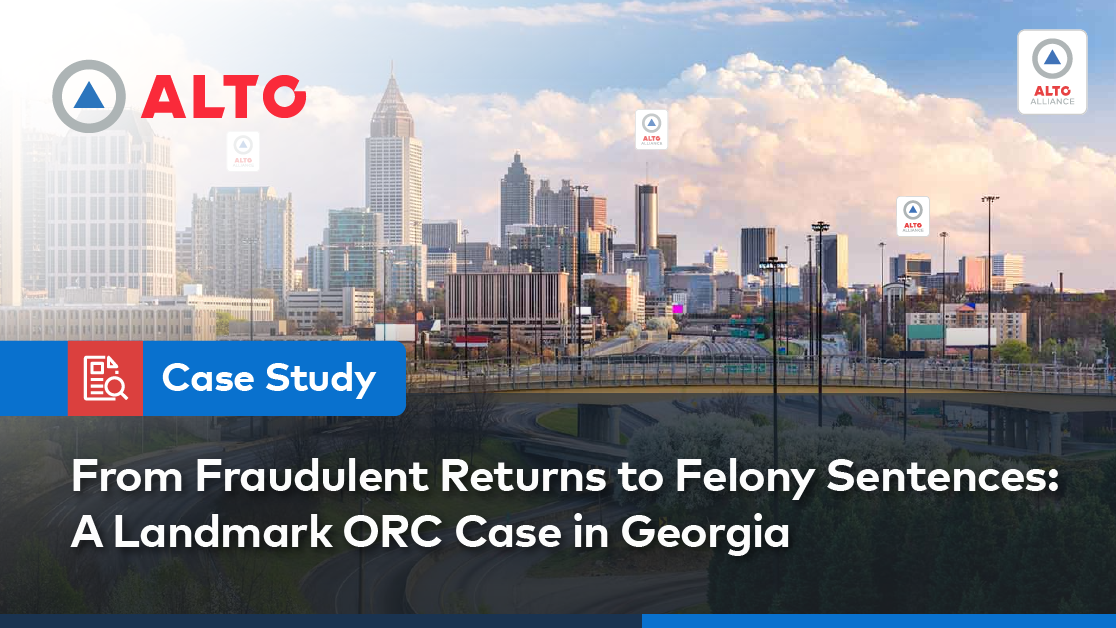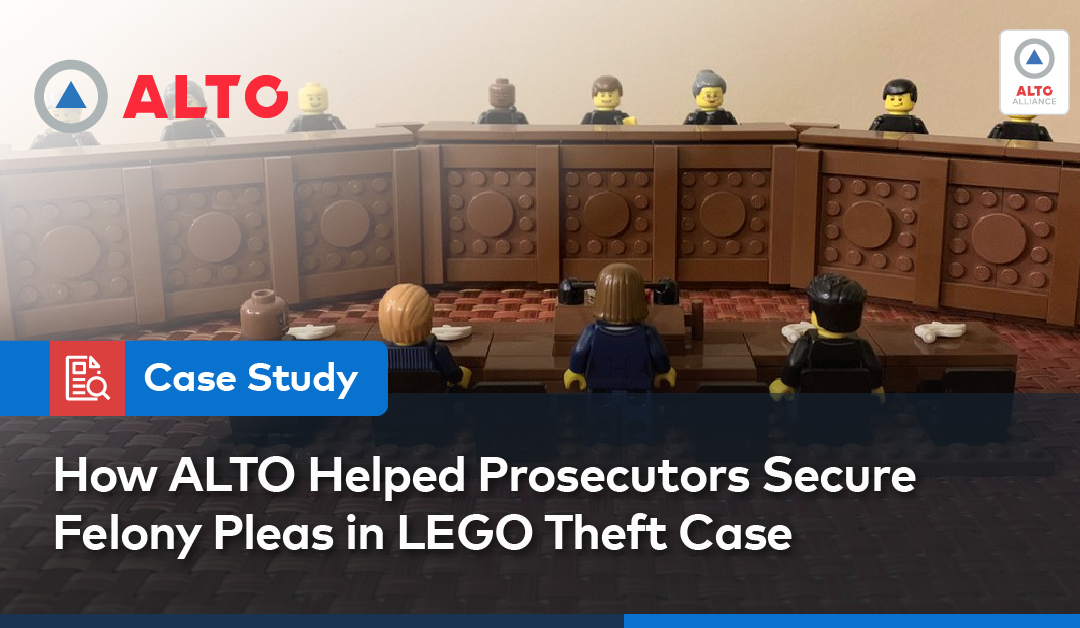In metro Atlanta, what first appeared as scattered return fraud across different stores quickly revealed itself as part of something larger: an organized retail crime crew operating across multiple counties, and even across state lines.
Listen to This Blog:
Prosecutors had already indicted the case under Georgia’s Racketeer Influenced and Corrupt Organizations (RICO) Act, thanks to strong groundwork and evidence collection by the retailer’s Organized Retail Crime (ORC) and Asset Protection (AP) teams. ALTO joined at a pivotal moment, ensuring continuity, coordination, and accountability as the case advanced.
The Scheme
The crew’s method was calculated. Offenders purchased high-value electronics such as smartwatches and earbuds, returned counterfeit or outdated items for full refunds, and resold the genuine merchandise online. This double-profit scheme left ALTO’s retail partner with mounting losses while fueling repeat criminal activity across communities.
Elevating the Case
Georgia’s broader RICO statute gave prosecutors the ability to treat this not as isolated incidents, but as an organized enterprise. Yet RICO cases are complex and demand persistence. With multiple prosecutor changes during the case, ALTO ensured continuity across jurisdictions, kept evidence organized, and supported prosecutors in keeping the case on track.
The result? Four offenders sentenced under Georgia’s RICO statute. One of the most recent sentences carried a 15-year sentencing term, a clear message that organized theft carries real consequences.
Accountability Outcomes
To date, four of five defendants have been sentenced in the 45-count indictment. Sentences included:
- 15 years felony probation (with 1 year to serve in custody)
- Electronic monitoring at probation’s discretion
- Restitution of $128,330.16 (joint and several liability)
- 80 hours of community service and employment requirements
- No-contact orders with stores or co-defendants
- Extradition waivers to prevent offenders from avoiding accountability across states
Why It Matters — and ALTO’s Role
Traditional responses to retail theft often stop at the incident level. This case took a different path: by treating the activity as an organized enterprise, prosecutors and retail partners dismantled the root cause of repeat offenses.
According to Charles Bowling, ALTO’s Atlanta Staff Attorney, “This case demonstrates that accountability is possible when corporate victims stay engaged throughout the process. Collaboration between store asset protection teams, law enforcement, prosecutors, and advocates are required to advance complex investigations into real outcomes. Theft cases don’t disappear on their own—they can fall apart when there isn’t consistent engagement at all critical stages. Accountability is achievable with advocacy and organization. This consistent engagement and collaboration can be replicated.”
ALTO’s role was pivotal in making that possible. We:
- Maintained case momentum through four prosecutor transitions, ensuring consistency from indictment to sentencing.
- Coordinated witnesses to keep the prosecution trial-ready at every stage.
- Prepared evidence packages and restitution requests, ensuring the full impact of the crime was documented and heard in court.
- Bridged communication across jurisdictions, so the enterprise case stayed intact rather than breaking down into piecemeal charges.
- Advocated at pre-trial stages to influence plea discussions, calendar management, and restitution outcomes.
As Bowling adds, “Deterrence and arrests are just one piece of asset protection. ALTO engagement and collaboration at every critical stage without disruption to the retail experience is invaluable. Long-term accountability is critical in the evaluation of any strategy.”



